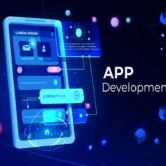
Explain the impact of generative AI on app content writing in India.
Introduction
Generative AI has rapidly transformed content creation processes across the globe, and India is no exception. In the context of app content writing—particularly for sectors like fintech, e-commerce, healthtech, and edtech—generative AI has introduced both efficiencies and challenges. Indian IT and content teams are leveraging AI to streamline microcopy creation, automate localization, personalize user experiences, and reduce content development timelines. At the same time, this technological shift demands new editorial guidelines, ethical boundaries, and quality control mechanisms to ensure that the human element of communication isn’t lost. This article examines how generative AI is influencing app content writing in India, across various dimensions of creation, collaboration, and content governance.
Acceleration of content creation timelines
One of the most immediate impacts of generative AI on app content writing in India is speed. Tools like ChatGPT, Jasper, and Writesonic are helping content teams generate draft microcopy, tooltips, push notifications, and onboarding instructions within seconds. For Indian IT firms operating under agile sprints, this dramatically reduces the time spent on writing and allows faster iterations. Writers can now focus more on editing, strategizing, and tailoring content to UX flows rather than building everything from scratch.
Enhanced personalization capabilities
Generative AI enables hyper-personalized content at scale. Indian apps in fintech and e-commerce are using AI-generated content to address users by name, recommend actions based on behavior, and dynamically alter microcopy based on the user’s app usage history. This level of personalization, previously achievable only with heavy manual effort, enhances user engagement and boosts conversion rates. AI-generated personalization is especially impactful in Tier 2 and Tier 3 cities, where contextual relevance drives higher app retention.
Support for multilingual content generation
India’s linguistic diversity poses a massive challenge for app content localization. Generative AI tools are now being trained on large multilingual datasets to generate accurate translations and regional adaptations of content in Hindi, Tamil, Telugu, Bengali, and more. This helps content teams reduce dependency on human translators and speeds up the localization pipeline. While AI still requires human review for nuance and cultural sensitivity, it provides a strong starting point that dramatically lowers turnaround times.
Consistent tone and brand voice enforcement
Maintaining a consistent brand tone across various content contributors and updates is complex. Generative AI helps enforce brand voice through prompt-engineering templates that guide content output. Indian IT teams are leveraging this to ensure that app content aligns with brand guidelines, whether it’s a trust-heavy tone for fintech or a conversational tone for lifestyle e-commerce. AI-generated style guides and tone checkers also aid editorial teams in maintaining cohesion throughout the product experience.
Automation of user support content
Generative AI is powering automated responses for FAQs, chatbot scripts, and help documentation. Indian apps are integrating these AI-generated assets into in-app support flows to answer user queries in real time. This reduces pressure on human support teams and provides users with immediate resolution, enhancing the overall customer experience. However, careful human oversight is essential to prevent misinformation, especially in sectors like insurance and personal finance.
Rise of collaborative human-AI workflows
Instead of replacing writers, generative AI is augmenting their capabilities. Indian app content teams are evolving into hybrid roles where humans guide, review, and refine AI outputs. Writers spend less time creating and more time curating, editing, and contextualizing AI-generated drafts. These collaborative workflows are now embedded into design systems and CMS tools used by Indian IT companies, allowing smooth integration between content writing, design, and development.
Challenges of factual accuracy and hallucination
Despite its strengths, generative AI is prone to inaccuracies, particularly when generating content related to regulations, pricing, or instructions. Indian fintech and healthcare apps must ensure that all AI-generated content goes through rigorous fact-checking. The risk of “hallucinations”—plausible but incorrect information—makes it essential to retain human validators in the loop. Editorial workflows are being redesigned to include AI output audits to mitigate this challenge.
Ethical considerations and regulatory alignment
The adoption of generative AI in app content writing also introduces ethical questions around authorship, bias, and content transparency. Indian regulators have started exploring frameworks to govern AI-generated content in digital platforms. Content teams must ensure that AI tools are not propagating stereotypes, misinformation, or biased narratives. Attribution policies, transparency disclaimers, and data privacy compliance need to be integrated into AI-enabled writing pipelines.
Cost reduction and resource optimization
By reducing the need for repetitive manual writing, generative AI helps Indian startups and mid-sized firms operate with leaner content teams. This is particularly beneficial in competitive app markets where frequent content refreshes are necessary. The savings in time and manpower allow content leads to allocate resources more strategically—focusing on innovation, user research, and storytelling.
Reinvention of editorial standards
With AI entering the writing domain, editorial standards are being redefined. Indian IT companies are now developing AI-era style guides that include prompts, response evaluations, and content scoring models. Editors are trained to identify AI errors, rephrase tone mismatches, and enhance human relatability. Content writing is evolving from a linear process to a dynamic, AI-augmented creative function that demands a new set of skills and review mechanisms.
Conclusion
Generative AI is not replacing content writing in India’s app development ecosystem—it is transforming it. From acceleration and localization to personalization and support, AI is enabling Indian IT teams to do more with less, and to do it faster. However, the real impact lies in how human writers adapt, supervise, and elevate AI-generated content to meet the diverse and dynamic needs of Indian users. As the landscape continues to evolve, successful content strategies will depend on a well-orchestrated blend of AI capabilities and human empathy, insight, and oversight.
Hashtags
#GenerativeAIIndia #AppContentAI #ContentWritingIndia #FintechContent #EcommerceContent #AIForUXWriting #AppLocalization #MultilingualAI #AIEditingTools #ContentAutomation #AIinITIndia #UXAIIntegration #PersonalizedAppContent #HumanInTheLoop #AIWritersIndia #AppContentStrategy #EditorialWorkflowAI #AIContentReview #AIinFintechApps #ContentTechIndia #MicrocopyAI #AIUXCopywriting #IndianAppWriters #DigitalIndiaContent #FutureOfContentIndia





